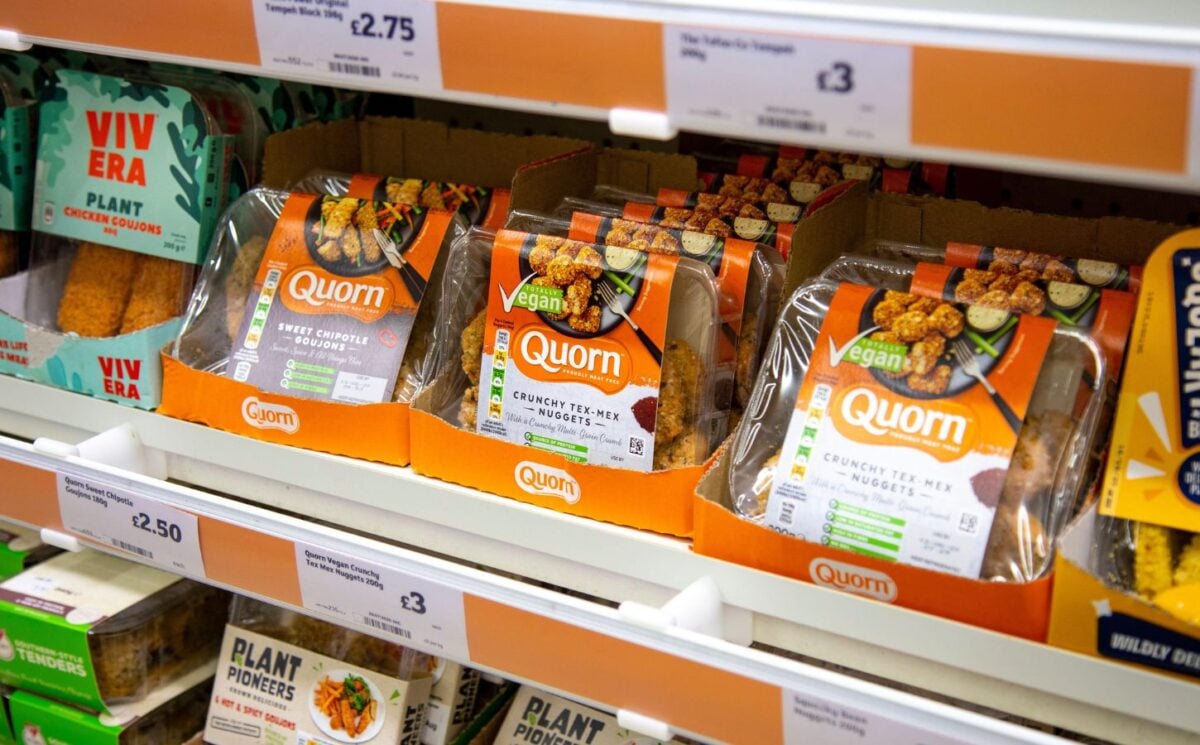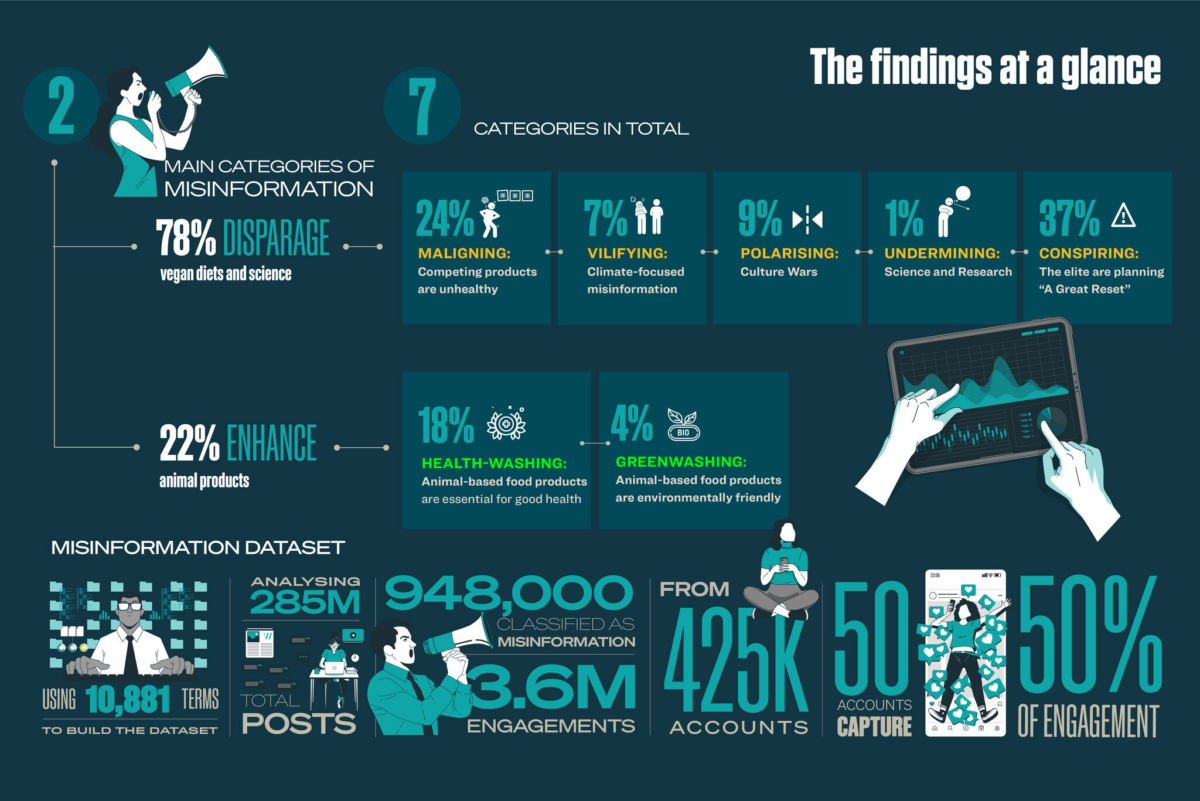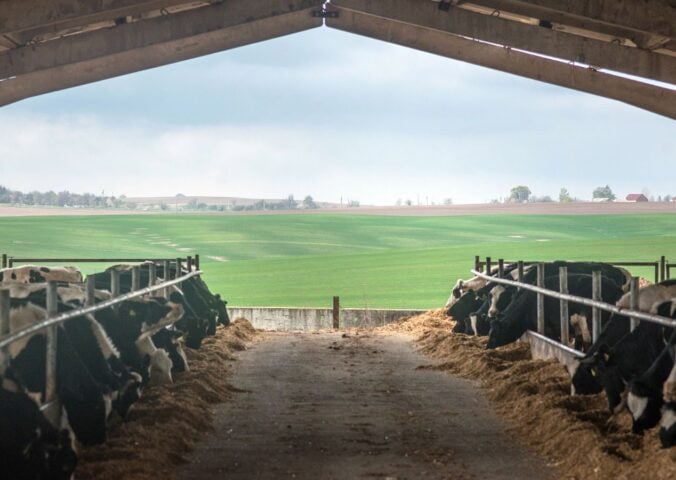Nearly a million social media posts have helped spread misinformation about alternative proteins and vegan diets, according to a new report.
The analysis of 285 million social media posts identified around 948,000 containing misinformation, mostly on X (formerly known as Twitter). The posts sowed doubt about the benefits of plant-based food and helped to greenwash and “health-wash” meat and dairy products.
Most of the engagement with the content came through a handful of rightwing commentators and politicians. These include former Fox News host Tucker Carlson, senior editor of conservative news site the Daily Wire Cabot Philips, and author of The Carnivore Diet Shawn Baker.
Some of the posts are the work meat and dairy interests. “We traced online attacks on alternative proteins and posts that exaggerate the benefits of meat and dairy directly to industry and its representatives,” Maddy Haughton-Boakes, senior campaigner at Changing Markets Foundation, which produced the report, said in a statement.
Attacking plant-based protein
Hundreds of millions of animals are killed for food everyday. Scientific evidence clearly shows that this enormous industry has a huge impact on the environment.
Meat and dairy production is the largest source of global methane emissions, accounting for 32 percent. Grazing land and growing feed crops for animals occupies 77 percent of global agricultural land. As a result, it is the biggest driver of habitat destruction.
Producing food sustainably requires a widespread shift to plant-based diets, particularly in high-income, high meat consumption countries. But the Changing Markets report shows that social media is a hotbed of denial of this fact.
The majority of the misinformation posts (78 percent) pushed “narratives that disparage” vegan diets and plant-based alternatives to animal products. One narrative is that alternative protein products are unhealthy or have a worse environmental and climate impact.
Posts also sowed doubt about the scientific evidence for meat and dairy’s environmental harms. Almost half the posts linked dietary change to conspiracy theories claiming that climate action and dietary change are part of a plan by the “global elite” to “weaken humanity and maintain control.”

Health-washing and greenwashing
The remaining 22 percent of posts analyzed promoted animal products as healthy and environmentally friendly. They “exaggerate” meat’s health benefits and claim it is “nutritionally superior” to plant proteins.
But studies show that whole foods plant-based diets are healthy and reduce the risks of various diseases, including some types of cancer and heart disease. Meanwhile, eating red and processed meat has been linked to increased risks of such diseases.
Greenwashing posts pushed the idea that cows can be “carbon neutral” through being grazed “regeneratively.” Regenerative grazing proponents claim that it can sequester enough carbon in soils to offset methane emissions from cattle. But the evidence shows this is not true, including a new paper in Nature.
Changing Markets had expected to find more posts promoting meat and dairy. “It was surprising to see the focus being so much on attacking plant-based alternatives,” Haughton-Boakes told Plant Based News. “[P]lant-based alternatives are seen as not only a rival to conventional meat and dairy but have become a focal point for ‘misinfluencers’ seeking to challenge progress on climate change as well as social shifts labelled as ‘woke’.
Haughton-Boakes added that many of the narratives they found use alternative proteins as “a symbol” of the “‘climate hoax'” and an attack on “personal freedoms and masculinity.”
Industry influence and “misinfluencers”

The meat and dairy industries are already actively trying to downplay their impact on the climate and environment. They also promote their products as essential for a healthy diet.
A Guardian investigation revealed that the US beef industry is building “an army of influencers and citizen activists” to counteract the science on the issue. Meanwhile, there is a pro-meat communications project run by Frank Mitloehner at the University of California, Davis, which receives meat industry funding. His research is often cited in misinformation posts.
The report found that a number of “misinfluencers” willingly disseminate industry messaging and amplify misinformation. Just 50 social media accounts are particularly influential in that regard. They “tend to hold apparent positions of professional influence” such as being doctors or media personalities.
Figures such as Shawn Baker, Tucker Carlson, Dr Loupis, and Cabot Philips are prolific producers of posts disparaging alternative proteins. Many of them are associated with alt-right ideologies and promote conspiracy theories.
Some of those that push the disparaging narratives also engage in health-washing and greenwashing of meat and dairy, the report said. The accounts that focus on this kind of messaging are less likely to post conspiracy theories, according to the report. Instead they exaggerate meat and dairy’s health benefits while ignoring any health risks associated with them.
Real world implications
The report notes that it isn’t possible to prove how much the misinformation on social media influences political decisions. But it warns that it is contributing “to a general inertia against regulating big meat and dairy for their outsized climate and wider environmental impact.”
It cites several examples of governments apparently leaning into the polarizing and misleading “debates” on animal products and alternative proteins. One is UK Prime Minister Rishi Sunak announcing he was scrapping a non-existent meat tax. Another is Italy’s recent ban on cell-cultured meat. Meanwhile, the Netherlands has recently seen political wins for the far-right, which embraces conspiracy theories relating to efforts to tackle the country’s nitrogen crisis by cutting farmed animal numbers.





